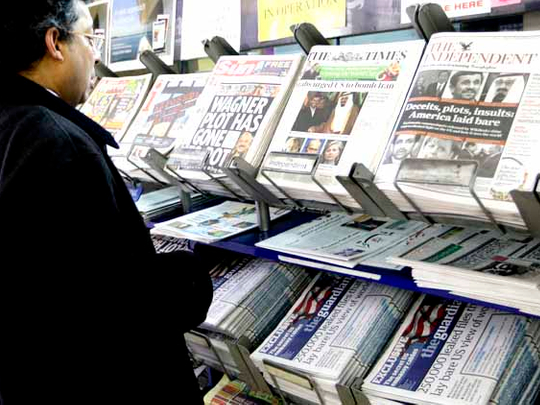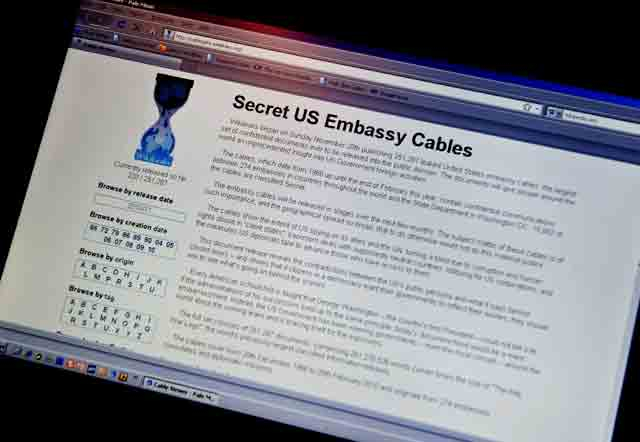
Manama: US State Secretary Hillary Clinton, suffering her most embarrassing setback following the publication of secret diplomatic reports, will this week sit with ministers whose leaders' private comments on a wide range of sensitive issues were reported by US ambassadors and, following a leak, published globally.
Clinton will deliver the opening speech of the annual Manama Dialogue on Saturday as she joins the foreign ministers of Bahrain, Qatar, Kuwait, the UAE, Yemen, Turkey, Jordan, Iraq and Iran in the Bahraini capital.
Several senior defence and security officials from 25 countries will also attend the December 3-5 conference.
View the latest WikiLeaks documents
Fact file: What is WikiLeaks?
In focus: WikiLeaks
Several of the US diplomatic cables released late on Sunday by whistleblower website WikiLeaks and its five media partners included caustic assessments of senior officials and reported the private views of Arab leaders on the situation in Iraq, Afghanistan and Iran and on ways to tackle terrorism.
The publication of the reports could be potentially damaging, particularly that most Arab leaders favour private and quiet diplomacy.
Tweeting his view, Shaikh Khalid Bin Ahmad Al Khalifa, Bahrain's foreign minister, said that the Wikileaks had "weakened diplomacy in general and US diplomacy in particular."
"This is not good for global stability. We need more diplomacy," he said, before adding in a light afterthought "the American ambassador just sent me an email labelled 'UNCLASSIFIED'..."
In Kuwait, US ambassador Deborah Jones published a letter in which she regretted the leak of private conversations and stressed the significance of relations and cooperation between her country and Kuwait.
Kuwaiti news portal Al Aan reported the envoy as saying that diplomatic cables did not necessarily always reflect the US official foreign policy.
Observers insist the incident is not likely to affect relations between the Arab countries and the US or with Iran.
"It is somewhat ugly, but will not affect relations," a Bahraini analyst, speaking on condition of anonymity, said. "Relations are really robust and do not get affected by such things. However, Arabs are likely to wonder how private their private conversations and idea exchanges with the Americans will be," he said.
Hours after the world read the comments of several Arab leaders and their behind-doors attitudes towards sensitive issues, no country in the Arab world made an official statement.
"We should not expect a reaction, particularly in the Gulf where leaders and officials are used to dealing discreetly with issues," Sulayman Nimr, the head of a Gulf think tank, said in comments to a French television. "While the leak will not have an impact on the long standing and continuous relations between the US and the Gulf, the Gulf countries will certainly be more cautious with US officials amid concerns about a possible leak of information in their military, security and economic discussions," he said.
In Tehran, Iran's President Mahmoud Ahmadinejad dismissed the leaked cables on its relations with neighbouring Arab countries as "not valuable" and accused the US administration of releasing them intentionally.
Answering a question by Iran's Press TV over the whistleblower website's "leaks," Ahmadinejad said: "Let me first correct you. The material was not leaked, but rather released in an organised way."
"The US administration released them and based on them they pass judgment … The documents have no legal value and will not have the political effect they seek," the Iranian president said at a press briefing in Tehran.
According to Ahmadinejad, the Wikileaks "game" is "not worth commenting upon and no one should waste their time reviewing them," Press TV reported.













